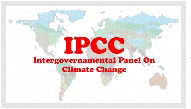|
|
|
|
|
|
|
News & Views item - May 2011 |
![]() IPCC Agrees to Overhaul Its Procedures. (May 17, 2011)
IPCC Agrees to Overhaul Its Procedures. (May 17, 2011)
 Members
of the Intergovernmental Panel on Climate Change (IPCC) gathered in Abu Dhabi
last week for their annual meeting. After months of considering alterations to
the way the panel should undertaking assessing the changing world climate and
formulating its reports it has reached a consensus.
Members
of the Intergovernmental Panel on Climate Change (IPCC) gathered in Abu Dhabi
last week for their annual meeting. After months of considering alterations to
the way the panel should undertaking assessing the changing world climate and
formulating its reports it has reached a consensus.
According to its May 13, 2011
media release![]() : "A stronger governance structure and a set of
forward-looking policies across a range of management issues were adopted today
by the Intergovernmental Panel on Climate Change (IPCC) at its 33rd Plenary
Session in the United Arab Emirates". The decision to reform how the IPCC did
business was in response to recommendations made by the
InterAcademy Council (IAC), an international group of
representatives from top science academies. The IAC considered the IPCC to be
"successful overall, but [the] IPCC needs to fundamentally reform its management
structure and strengthen its procedures to handle ever larger and increasingly
complex climate assessments as well as the more intense public scrutiny".
: "A stronger governance structure and a set of
forward-looking policies across a range of management issues were adopted today
by the Intergovernmental Panel on Climate Change (IPCC) at its 33rd Plenary
Session in the United Arab Emirates". The decision to reform how the IPCC did
business was in response to recommendations made by the
InterAcademy Council (IAC), an international group of
representatives from top science academies. The IAC considered the IPCC to be
"successful overall, but [the] IPCC needs to fundamentally reform its management
structure and strengthen its procedures to handle ever larger and increasingly
complex climate assessments as well as the more intense public scrutiny".
The overreaching criticism by the IAC was its lack of an executive body, which in turn was a key factor in the IPCC's failure to respond adequately to the crisis caused by its error about the rate of Himalayan glacier melting -- which had not been caught in its most recent assessment report -- as well as the eruption following the leaked e-mails from the University of East Anglia's Climatic Research Unit.
The IPCC has now announced that an "executive committee of 13 members will be created to oversee the body's daily operations and to act on issues that cannot wait for full plenary meetings". The Panel also agreed on policies and protocols on how to handle scientific uncertainties and corrections of errors in reports.
In addition a far reaching conflict-of-interest policy will require all IPCC officials and authors to disclose both financial and non-financial interests relevant to their work.
Chris Field, Co-Chair of IPCC Working Group II, which deals with climate impacts, adaptation and development, said: “Strong procedures are the absolute bedrock foundation for high-quality scientific assessments. With the enhancements to the procedures approved in Abu Dhabi, we are building upon the IPCC’s firm foundations in order to make the next Assessment Report, due out in 2013 and 2014, the highest quality IPCC report to date. The upgrades to the procedures on ensuring thorough reviews, explaining uncertainty and what constitutes relevant literature should deliver a Fifth Assessment that is clearer, more nuanced, and more relevant to the needs of the global community."